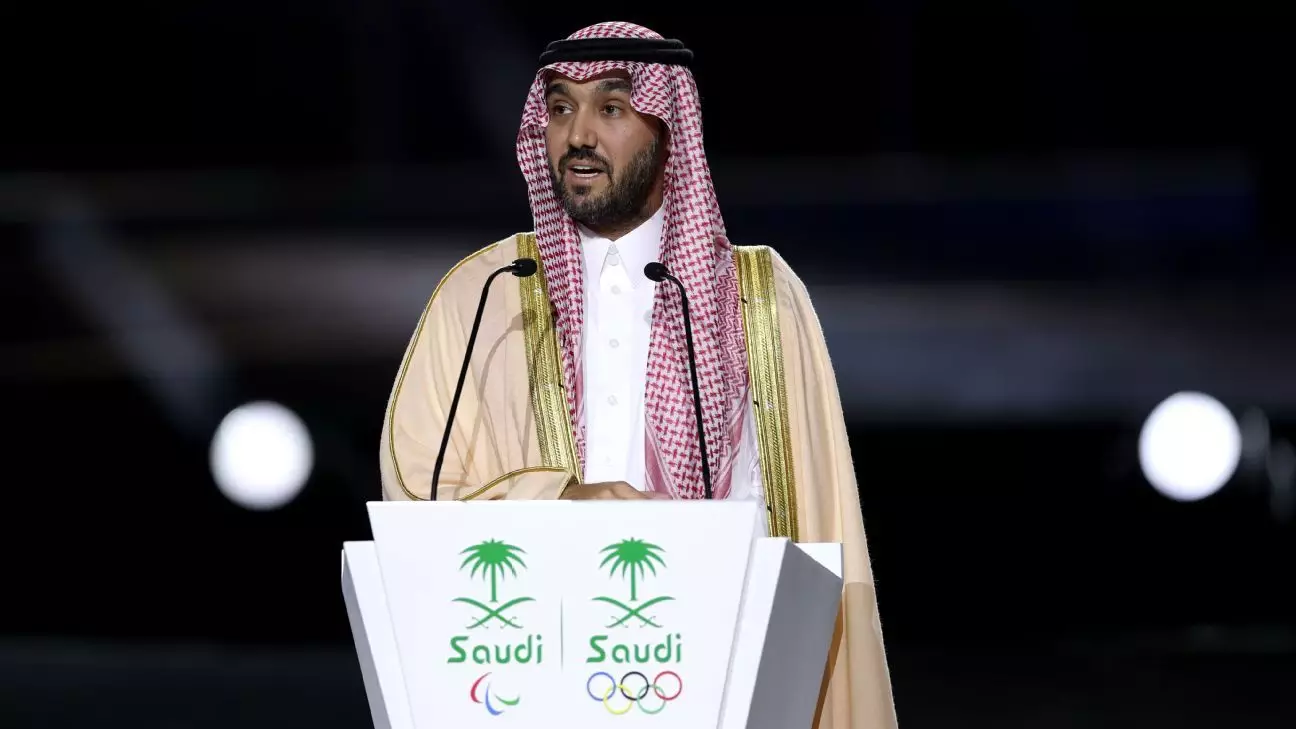As Saudi Arabia prepares to host the 2034 World Cup, the nation finds itself under intense scrutiny due to tragic incidents that highlight the dark side of its rapid development. The recent death of Muhammad Arshad, a migrant worker who fell during the construction of the Aramco Stadium, serves as a sobering reminder of the issues surrounding worker safety in a country that is fervently pushing towards modernization and global recognition. Despite assurances from Prince Abdulaziz bin Turki Al-Faisal, the nation’s Minister of Sport, one cannot help but wonder if these tragic occurrences can ever truly be prevented in a system that often prioritizes progress over the wellbeing of its labor force.
A Culture of Accountability?
In his public statements, Al-Faisal went to great lengths to assure the media and the public that worker safety is being taken “seriously,” and that investigations will be conducted following any incident. This commitment, however, raises more questions than it answers. While it is commendable to launch inquiries, the repetition of such scenarios indicates a deeper systemic issue. The construction industry in many countries, especially those with booming infrastructure projects like Saudi Arabia, often operates under practices that can lead to complacency regarding worker safety. One can’t ignore the alarming frequency with which These issues arise, prompting serious skepticism about the effectiveness of existing procedures designed to protect workers.
The Illusion of Safety
Al-Faisal’s remarks that “these things happen” in construction may inadvertently normalize the tragic reality that too many workers face. He cites an incident-free period in the Diriyah project boasting 35,000 workers as a benchmark, but this observation diverts attention from the very real possibility that worker safety practices could be superficial or inconsistent. It is essential to recognize that just because one project appears successful, it does not negate the grave realities faced by many workers at other sites. If a few projects can run smoothly, this raises the question of why others cannot adhere to the same standards. It speaks to a culture that may not prioritize the safety of its laborers consistently.
Human Rights Risks in Global Sports
Internationally, the decision to award the World Cup to Saudi Arabia has been met with outrage from human rights organizations, which have emphatically warned that the environment could be perilous for migrant workers. The rationale that hosting such a prominent event could catalyze social change is both optimistic and naive. FIFA President Gianni Infantino suggests that the World Cup can serve as a “unique catalyst for positive social change and unity,” but it remains crucial to examine whether this rhetoric translates into actual improvements in labor rights. Just as Qatar’s 2022 World Cup was overshadowed by worker abuse scandals, the same narrative could repeat in Saudi Arabia if mechanisms aren’t put in place to provide safety and uphold the rights of workers.
Lessons Unlearned? A Call for Authentic Change
Many skeptics worry that lessons from previous tournaments have yet to be acknowledged or utilized effectively. The situation faced by Qatari organizers during their World Cup preparations should have provided indispensable insights into the complexities related to labor rights. Al-Faisal mentions learning from Qatar’s experiences, yet this sounds like a rehearsed sentiment rather than a commitment to genuine reform. Authentic progress requires systemic change, and merely stating that ongoing dialogues are in place with Qatar and FIFA is insufficient without tangible actions that prioritize worker safety.
The Need for Systematic Reform
In the face of mounting pressure and a world increasingly focused on ethical labor practices, the responsibility lies with Saudi Arabia, FIFA, and allied organizations to instigate meaningful reforms. Imposing stringent safety regulations, conducting regular audits, and ensuring transparency can help build a safer working environment. It is essential to create a culture where worker safety is not just a talking point but a fundamental principle driving development. The world is watching, and as football unites nations, it is also vital that it uplifts the human rights of those who make such grand spectacles possible.
By addressing these challenges head-on, Saudi Arabia may not only redeem its global image but also cultivate an environment conducive to the well-being of its workers, thus allowing the nation to shine during the World Cup for all the right reasons.

Leave a Reply